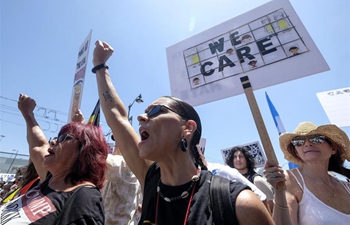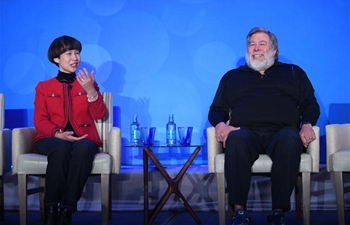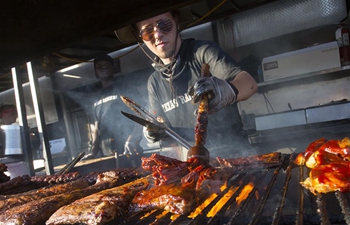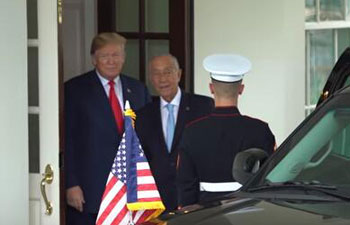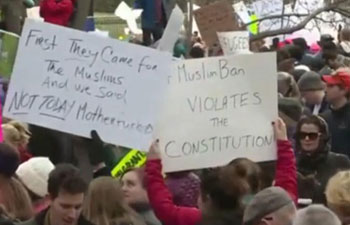by Peter Mertz
DENVER, the United States, July 1 (Xinhua) -- Visa restrictions on Chinese students studying in certain areas have come into effect, drawing criticism from U.S. educators.
A computer science major from Beijing, who spoke on the condition of anonymity, told Xinhua he was detained by Homeland Security officials in San Francisco last week for several hours "before they let me go."
TARGETING CHINESE STUDENTS
The targeting of Chinese students, however, has seen little coverage in the U.S. media.
On Friday, U.S. publication Foreign Policy carried an article, "The U.S. can't afford to demonize China," saying that the complicit U.S. media allows consistent China-bashing based on such themes as "Chinese attempts to undermine intellectual freedom at U.S. universities."
While Department of State officials are unclear about details of the new policy, which came into effect two weeks ago, Chinese graduate students are now limited to one-year visas if they're studying in fields such as robotics, aviation and high-tech manufacturing, according to the only specific information coming out of a subcommittee hearing last month.
"America has just reversed course and defaulted 130 years, playing another prejudiced game against the Chinese," Douglas Hubscher, an educator from Virginia, said.
Hubscher was referring to the 1882 Chinese Exclusion Act signed by then U.S. President Chester Arthur, which prohibited Chinese labor immigration in a concerted political war waged on Chinese nationals. It was repealed in 1943 after Japan attacked both countries.
During those years, many Chinese-Americans were subjected to outrageous acts of prejudice, retired Colorado University history professor John Yee said.
"There's still prejudice against Chinese-Americans in America today," Yee told Xinhua.
According to the Association of International Educators, international students studying in U.S. colleges and universities contributed nearly 37 billion U.S. dollars to the U.S. economy during the 2016-2017 academic year.
"I think they have no idea how large a segment of our society they are affecting, and the economic power they (international students) wield," Hubscher told Xinhua.
DISSENT STIFLED
Last month, the Senate Judiciary Subcommittee on Border Security and Immigration held a hearing to announce the new Trump administration directives but allowed no voice of dissention.
Committee Chair Senator John Cornyn of Texas refused to allow Federal Congresswoman Judy Chu of California to speak at the hearing against the visa restrictions.
Chu, whose parents were born in China's Guangdong Province, is the first Chinese-American woman elected to the Congress in 2009, and represents California's 27th district that includes Los Angeles.
"I want to speak out against some potentially dangerous generalizations that would paint all Chinese students and scholars as spies for China," Chu warned in a statement.
Senator Dick Durbin of Illinois, the ranking Democrat on the panel, said it was the first time in more than 20 years that the opposition voice was intentionally silenced.
EDUCATING CHILDREN
Since 2006, Robert Mendoza has been the headmaster at the nationally acclaimed Fairmont Private Schools in Orange County, where enrollment is close to 2,000. Ninety-one percent students go to attend a top 100 U.S. university.
"I think that some people are uninformed about what are the true intentions of students and their families," Mendoza told Xinhua.
At the Fairmont Preparatory Academy, grades 9-12, 60 percent of the students are international, and 40 percent of them are Chinese, according to Mendoza.
"There is such an awesome responsibility for us to make them feel welcome," he said, adding he has met hundreds of Chinese parents and thousands of Chinese students over the years.
"When you meet them and look them in the eye and see what is at stake (for) them to have their children here in America, then you might feel differently," he said.
"They're not Chinese, they're parents, and the kids are not Chinese students, they're students," Mendoza said.







